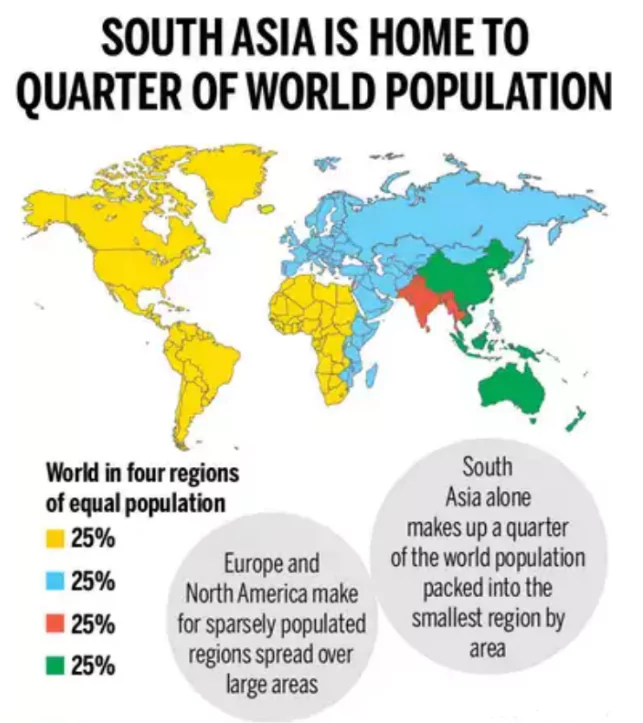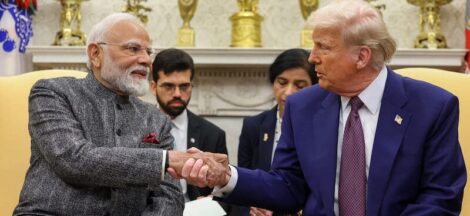By Ashis Biswas
KOLKATA: In South Asia generally, the level of politics-related mass violence has been rising in recent times, causing concern among ruling parties/establishments in most countries. The lives of millions have been impacted negatively by such violence whether in Bangladesh, Nepal, Sri Lanka, Myanmar — or India! Moreover, worsening economic conditions during the post covid period have also emerged as a major factor contributing to existing social tensions.
Think tank experts, economists and political leaders, in Nepal, Sri Lanka and Bangladesh have expressed their worries regarding the future of democratic system of governance in the region as a whole.
Observers, analysing current political trends in big brush strokes, point to the prolonged economic crises especially in China and Europe, leading to a worldwide production loss, and declining demands among smaller countries of Africa and Asia. Some analysts maintain that the slump resulting from the Subprime economic crisis of 2008-09 in the US, had set off a general decline, the effects of which had not quite died down.
Further, prospects of a stabilisation in the world economy in the short term were hit hard by the recent outbreak of the Corona Pandemic, creating a recession-like situation in many countries. Armed conflicts broke out in Ukraine, and the Middle East, causing massive losses of lives and property. Apex level talks to resolve these battles have just begun and no one knows how long they may take.
The present situation has hit some countries harder than others. Of late, Bangladeshi economists and political leaders have been expressing their deep concerns about the country’s future, in the medium term. When it came to performing consistently in exports or earning healthy remittances year after year, Bangladesh was well ahead of many countries, including Pakistan. In per capita GDP income terms, it had done better than India!
During the last decade, the impressive economic performance of Bangladesh had enabled it to join the ranks of mid-income countries, as it comfortably fulfilled certain UN-recognised criteria.
Unfortunately, the present political crisis in Bangladesh, has put paid to its earlier high hopes of strengthening its economy further and continue its steady economic progress even among more developed nations. Dhaka-based analysts, now fear that in a country, of around 170 million people, at least 32 million youths were unemployed. Worse, both Europe and the US were restricting the entry of foreigners whether as students or workers, making things difficult for export-oriented and manpower reliant economies like Bangladesh, much harder than before,
Some political leaders in Bangladesh are worried about the rapid increase in the number of poor people in recent times as the country is being ruled by a caretaker administration. During the past nine months following an anti-Awami League (AL) coup, at least 35/40 million people, they fear, have sunk from the poor to very poor level.
As its temporary leader in charge, Dr. M Yunus has certainly helped Bangladesh keep its economy functional by securing much needed foreign financial help from major institutions like the IMF and the World Bank. Remittances, too have improved
On the other hand, Bangladeshi exports have become more uncertain and unpredictable than before and opportunities for jobs abroad are shrinking worldwide. .Analysts wonder, how long can Dr. Yunus’s holding operation help sustain Bangladesh ? Also , what kind of an administration will govern Bangladesh after its next general elections, which can be held anytime between this year and June 2026.
Political leaders and opinion makers naturally appreciate the patience shown by the army in Bangladesh. Unlike their notoriously trigger-happy counterparts especially in Pakistan, the armed forces have not been involved in a mad scramble for power. .
But bitter differences remain among the supporters of the Awami League and its chief opponent, the BNP. In July 2024 before the AL lost in a coup, inter party clashes had claimed over 300 lives. And on August 4, a day before the coup occurred, a further 100 people were killed . The possibility of a civil war like situation in Bangladesh, following an outbreak of massive violence, cannot be ruled out.
Naturally, in the immediate aftermath of the anti AL coup, the unexpected emergence of economist and Nobel laureate Dr Yunus as Chief Adviser to the President Mr M. Shabuddin prevented a total collapse of governance in Bangladesh. It is common knowledge that before her escape to India, former Prime Minister was in favour the police and other forces to strike down aggressive groups of students who had gone on a rampage against her administration. It was the army Chief who had refused to open fire against angry mobs of students and common people, who were protesting against the AL and pressing for fresh elections!
The number of Bangladeshis killed in police firings and other forms of violence until Aug has been estimated between 2500 to 3000.
Given such a violent backdrop before the next round of elections and the eagerness of major political parties for a free and fair polls, Dr Yunus, who sought more time as the CA to implement certain ‘reforms’ within the system, came under acute pressure.
Bangladeshi intellectuals on the other hand, were concerned about what they felt was the determination of the CA not to hold immediate elections and his apparent obsession with major decisions like whether to sell/lease the Chittagong port and the St Martin island to the US which Ms Sheikh Hasina had refused to do. Naturally of late there have been numerous articles in major papers as to whether democracy could really take roots in a country like theirs! They could not support the role played by team Yunus, even if they opposed Hasina.
It has been no different in Nepal. In a section of the English language press, questions have been raised about the future of Nepal, with special focus on whether a democratic system of Governance could be possible in the near term. There was general concern, and as to what kind of administration could do its job seeing that there were almost 4000 major demonstrations in the country, during the last few months. At least 12 major strikes had been organised. Also, over 800 units had seen workers lose their jobs
Almost all sections of people had taken part in these demonstrations and protests, making it difficult for officials to maintain their authority and function! As no one could really believe in Ministerial assurances/announcements, could there ever be a vibrant democratic political system for Nepal?
It is certainly possible to ask similar questions about the fate of democracy in the civil-war torn Pakistan ,Myanmar, India (think of Manipur or West Bengal!) or Sri Lanka which recently overcame an economic crisis that ended with the escape of the then incumbent, about two years ago.
The only silver lining in this otherwise gloomy write-up on current trends and mass unrest is that somehow in South Asia, Sri Lanka has been staging an economic recovery of sorts, silencing Cassandras for now. (IPA Service)




 The Trajectory Of Unique Relationship Between Donald Trump And Elon Musk
The Trajectory Of Unique Relationship Between Donald Trump And Elon Musk 